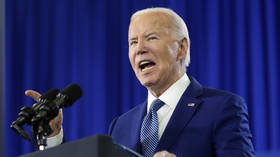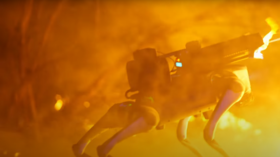ROAR: “Russia was not isolated after the war with Georgia”

Russia’s cooperation with the West is continuing despite disagreements over the conflict between Moscow and Tbilisi in 2008.
Many in the West predicted the international isolation of Russia after the war in August 2008, wrote Mikhail Margelov, the chairman of the Federation Council’s Committee on International Affairs, in an article for Rossiyskaya Gazeta daily. It never happened, even after Russia recognized the independence of Abkhazia and South Ossetia, he stressed.
Margelov sees the main explanation for this in the fact that “Russia proved to be surprisingly different from what it was in the 1990s.”
“It turned out that it is ready to defend its national interests,” he said. “Russia averted a big war in the Caucasus by its actions,” he added.
As for the West, it is still faithful to Georgian President Mikhail Saakashvili and keeps talking about Georgia’s territorial integrity, Margelov said. “However, it was Tbilisi, not Moscow, that did everything to lose the two republics for good,” he added.
At the same time, some analysts believe that the West is not as faithful to the Georgian president as before. “Mikhail Saakashvili is considered the main initiator of the war, despite the fact that [politicians] in Washington prefer not to speak about it out loud,” Vagif Guseynov, director of the Institute of Strategic Studies and analysis, told the daily newspaper RBC.
Margelov writes that in the present world “it is impossible to isolate such a country as Russia.” Moscow and Washington are resetting their relations, even without Russia’s recognition of Kosovo or the US recognition of Abkhazia and South Ossetia, he pointed out.
Both the US and NATO are interested in good relations with Moscow, Margelov believes. Georgia is being promised a place in the alliance in the future, but “the future is always too vague,” he said.
“One should only compare the predictions about international punishment which were promised to Russia in August 2008 with what really happened,” Margelov said.
Nikolay Levichev, head of the Just Russia’s faction in the State Duma, believes that it was not possible to corner Russia into “a diplomatic blockade, as some of our partners wanted.”
“Today, Russia’s cooperation with Western countries, including with the US, and NATO is developing despite disagreements in assessments of the situation in the Caucasus,” Levichev told Vremya Novostey.
Russia’s envoy to NATO Dmitry Rogozin believes that the year that has passed since the war in the Caucasus “showed that we were right.” He also believes “that nothing has resulted from attempts to isolate Russia politically.”
Russia reacted to the situation in 2008 at the moment when that situation required the most immediate interference, he told newspaper Gazeta.
Moscow came to the rescue of its citizens, Rogozin added. “All of Russia’s actions were absolutely right from the point of view of international law and a concrete political moment,” he said.
The decision about the recognition of Abkhazia and South Ossetia was the only right one in that situation, Rogozin said.
Valery Bogomolov, deputy of the State Duma from the United Russia Party, in his turn, has called the recognition of Abkhazia and South Ossetia by Russia the main event of the year that passed since the conflict broke.
“It is a very important diplomatic and political success,” Bogomolov told the Regions.ru website. However, he stressed that a model of the world with one center of power “could not be changed, even by such an important event as the conflict between Georgia and South Ossetia.”
Observers in Moscow believe the US will continue to provide military assistance to the Georgian regime. Russia’s envoy to NATO also said that if US servicemen become part of international observers in Georgia, “a new provocation [from Tbilisi] is absolutely possible.”
Rogozin also commented on the appointment of Russian citizen Vadim Brovtsev as the new Prime Minister of South Ossetia’s government: “Everyone living in South Ossetia is a Russian citizen,” he said. “The sensation would be if someone who is not a Russian citizen were appointed the PM,” he added.
The year that passed after the war “led to the complete change of the main international balances and the conflict in the Caucasus was one of stimulators and catalysts of this process,” Gleb Pavlovsky, the president of the Foundation for Effective Politics, believes.
Russia has become a player in a new game that began after the US got a new president, Pavlovsky told Gazeta. If Russia did not make that move in defending South Ossetia a year ago, “we would cease to exist as a considerable force in the Caucasus,” he added.
Vasily Likhachev, deputy chairman of the Federation Council’s Committee on International Affairs, thinks that Russia has “to withstand the information attacks from the West because, unfortunately, Europeans still have biased opinions of last August’s events in the Caucasus.” “They have not formed a fair opinion yet,” he told website Regions.ru.
David Satter, a senior fellow at the Hudson Institute, told RT that he did not see any considerable changes in attitudes of Western politicians or analysts to the last year’s conflict.
Satter has not seen any changes in Russia’s position either. As for the situation in the region, it “remains dangerous,” Satter said.
Some 34% of those polled by RT said their opinion of the South Ossetian conflict has changed during a year after the war. They chose the answer “It’s obvious now Georgia started the bloodshed” on RT’s website.
At the same time, 20% of respondents said they “still think Russia attacked Georgia,” and 35% “always knew who was behind it.”
Despite the conflict began and ended a year ago, 11% of those who voted on RT’s website by the time this article was prepared, said they “are lost – the media is still skewing the facts.”
Sergey Borisov, RT














